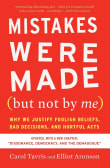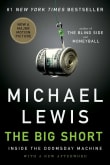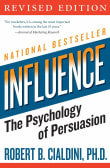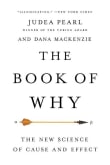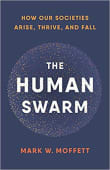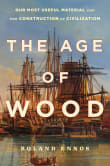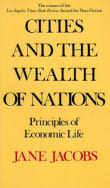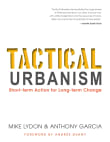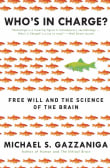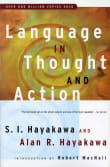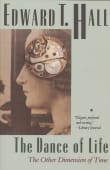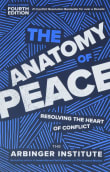The Righteous Mind
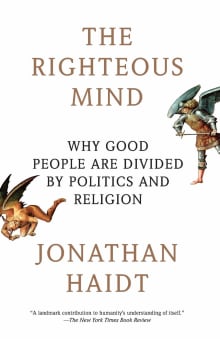
Book description
'A landmark contribution to humanity's understanding of itself' The New York Times
Why can it sometimes feel as though half the population is living in a different moral universe? Why do ideas such as 'fairness' and 'freedom' mean such different things to different people? Why is it so hard to…
Why read it?
16 authors picked The Righteous Mind as one of their favorite books. Why do they recommend it?

Best recent book examining human morality from a scientific, psychological point of view.
Darwinians used to think humans had to be selfish and immoral. Contemporary evolution argues the opposite, that humans evolved moral limits on our selfishness in order to live together. Haidt’s is the best book presenting this new evolutionary psychology.
But it goes further to connect those scientific issues with contemporary politics, explaining why people from “red” and “blue” states cannot understand each other: they each embody a short list of human moral values, but different ones. This is a great book for thinking carefully about human morality…
From Larry's list on history and science books that tell us who we are now.

I could not put this book down from the moment I began reading, even though its topic is far from my own research field.
I love the first-hand nature of the research that is described, including how the author was able to accumulate his students’ findings over many years into a well-reasoned synthesis of why good people are divided by their often intransigent beliefs.
It made me question myself and why I think the way I do, and in that regard, it made me reflect more than perhaps any other book I’ve ever read. Just when you think it’s over,…
From Graham's list on science in action written by scientists.

In the past year I reread this book. I don’t know about other people, but the current state of political discourse in the US is deeply depressing for me.
There is a level of animosity if not hatred that I do not remember 20, 30, 40, or even 50 years ago. And as one who has lived his adult life in a deeply blue highly intellectual community but who grew up in an equally deeply red fundamentalist community, I am often aghast at how people seem to simply talk past each other, and how people view the other with contempt.…
If you love The Righteous Mind...

For anyone looking to understand our divides, or wanting to reduce those divides, I think reading Haidt's book is necessary.
Haidt examines the values that we typically associate with politically 'conservative' and 'liberal' points of view, and shows the underlying values there. And these values can be much more complex than we tend to think. This examination is especially helpful for American Democrats, who often perceive conservative stances through an excessively pessimistic and contemptuous lens.
From Zachary's list on healing the political divides in America.

In my experience, this is the best book for understanding tribal dispositions in a conflict, and the morals inside your brain.
Haidt is a masterful writer who uses cutting-edge research and illustrative examples to show how society got so fractured—and how we might be able to repair it. It was timely when it came out in 2012, and it’s only getting more relevant as the years go by.
From Tobias' list on why everything feels terrible right now.

This is the OG of books on polarization in modern US politics.
It’s a seminal take on partisan misunderstanding, arguing that Democrats and Republicans have different “moral foundations” or values, and that it’s often the case that neither side’s values are fundamentally better or worse, they’re just different.
Haidt compellingly describes himself as a formerly polarized liberal who grew more tolerant and even appreciative of conservatives when he came to understand them better due to his research.
Moral foundations theory is somewhat controversial now but there’s a lot of good evolutionary psychology in the book that clearly holds up well,…
From Daniel's list on understanding and defusing political polarization in America.
If you love Jonathan Haidt...

Why do smart, well-meaning people disagree about politics and how do they justify their opinions?
Jonathan Haidt lucidly describes how people rationalize their judgments only after they intuit what is right or wrong. He shows that liberals place a lot of weight on care and fairness, while conservatives balance these concerns with loyalty, respect for authority, and sanctity.
This book made me more cognizant of my own moral reasoning, and how I, like everyone, weigh a variety of such concerns when staking a position on a social issue.
From John's list on explaining political polarization.

I have found The Righteous Mind to be a fascinating exploration of how we think about reality from a moral perspective.
As with my broader interest in combining neuroscience, spirituality, and philosophy, Haidt's book offers a fresh and multidimensional perspective on morality, politics, and religion. He presents a comprehensive framework that goes beyond traditional dichotomies, such as liberal versus conservative or rational versus irrational, to explore the diverse moral foundations that shape our beliefs and behaviors.
Psychological Insights: Drawing on extensive research in psychology, neuroscience, and social science, Haidt skillfully explains how moral intuitions are shaped by a combination of…
From Andrew's list on the science of spiritual experiences.

Readers will be informed and stimulated by any book by Haidt, one of psychology’s great public intellectuals. This influential volume speaks to our polarized world, by identifying the moral virtues of both left and right, and advocating cross-partisan dialogue. As such, it sets the foundation for Haidt’s Heterodox Academy initiative, which advocates open, free-spirited campus conversations.
From David's list on psychological science wisdom about the human mind.
If you love The Righteous Mind...

Haidt is the one who originally equated our reasoning brains to a rider, and our automatic, emotional brains as the massive elephant we try desperately to steer. In works like Thinking, Fast and Slow, Nobel laureate Daniel Kahneman helped us understand how our emotional side dominates and precedes our logical side, but here Haidt helps us better understand the evolutionary reasons and modern-day implications of the fact that we lead with our instincts and feelings and then use our reasoning to try to convince both ourselves and others that we actually used logic. Haidt gives a fantastic TED Talk…
From Jenny's list on getting people to accept facts.
Want books like The Righteous Mind?
Our community of 12,000+ authors has personally recommended 100 books like The Righteous Mind.



